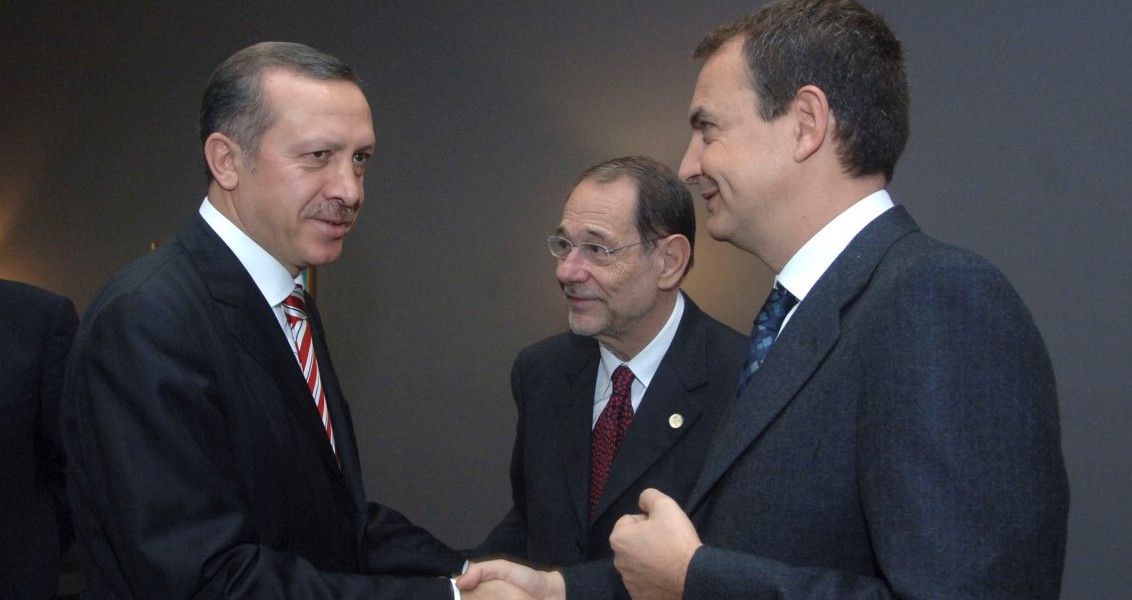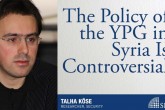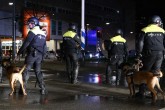The international initiative that culminated in the foundation of the United Nations Alliance of Civilizations (UNAOC) under the co-presidency of Turkey and Spain in 2006 was one of the few concrete steps taken to foster intercultural dialogue in a world of intensifying tensions and conflicts. When then Prime Minister Recep Tayyip Erdoğan and Spanish Prime Minister Zapatero took the initiative to launch an inclusive U.N. platform in which diplomats, civil society leaders, academics and business circles could discuss potential opportunities for improving intercultural dialogue, the neoconservatives of U.S. President George W. Bush’s administration were still in power, wars were raging in Iraq and Afghanistan and the religious-ideological lexicon of the Crusades was still widely used. Therefore, even entertaining the idea that representatives of the main civilizational axes in the world, consisting of Islam, Christianity, Judaism, Buddhism, Confucianism and other religions could be brought under a civil platform supported by the U.N. seemed like an extremely brave endeavor.
From another angle, the UNAOC initiative represented a perfect example of Turkey’s proactive, multilateral diplomacy based on building international alliances around common principles and inclusiveness, contributing to innovative peace building through dialogue. As we celebrate its 10th anniversary, the UNAOC initiative still stands as one of Turkey’s most successful diplomatic initiatives, receiving the support of an extensive Group of Friends made up of 145 members, 119 of which are U.N. member states and 26 international organizations. It was a true accomplishment on the part of Turkey and Spain to extend the Group of Friends to all continents, societies and cultures under the coordination of the UNAOC High Representative through a dialogue-based and consensus-building approach.
Global and regional balances, as well as the state of intercultural relations went through a substantial transformation over the course of the last decade. U.S. President Barack Obama’s administration gave a false hope of peaceful global governance culminating in a premature Nobel Peace Prize, and then discriminatory language began to fade initially in Western countries. Yet the aftershocks of the global economic crisis triggered a new wave of Islamophobia, discrimination and xenophobia along with the political rise of the extreme right in the European Union. Meanwhile, the authoritarian reversal of the Arab revolutions, the collapse of public authority in countries such as Iraq, Yemen and Libya and the inception of the civil war in Syria poisoned the regional atmosphere for peaceful coexistence in the Middle East. Under these tumultuous challenges, Turkey’s diplomatic game plan based on solving frozen problems with neighbors, increasing mutual interdependence and stressing soft power elements, such as trade and civil interaction, took a serious blow. Repercussions caused by the Syrian civil war, including the massive refugee flows and coordinated terror attacks by DAESH and the PKK, challenged socio-economic stability, yet the firm political leadership under Erdoğan successfully managed to withstand these challenges.
These thoughts were in my mind, while participating in the 7th Global Forum of the UNAOC in Baku, Azerbaijan, this week, along with the more than 2,500 participants from all over the world. Azerbaijani President İlham Aliyev made the first speech of the plenary, but all eyes were on Erdoğan as the original co-founder of the UNAOC who was able to maintain his central political position over the last decade. In his usually frank and unwavering style, Erdoğan stressed the dangers of sectarian conflicts in the Islamic world; strongly criticized the interventions of global powers that prepared fertile ground for failed states, extremism and terrorism; and urged a common, global response to foster peaceful coexistence. As far as the future of the UNAOC is concerned, Spain seems considerably reluctant to play a strong leadership role since Zapatero’s fall from political favor. Yet, Turkey’s determined leadership keeps proving to be a vital lifeline to the platform and protects its demise to another diplomatic talk shop International cultural institutions, such as UNESCO from the U.N. group, and the IRCICA Research Center for Islamic History, Art and Culture Organization of Islamic Cooperation (OIC) subsidiaries are providing crucial support to the initiative, which needs to continue despite critical challenges if we want to see peaceful coexistence in multicultural societies materialized someday.
[Daily Sabah, 30 April, 2016]
In this article
- Economy
- Opinion
- 2006
- 2016
- Afghanistan
- Anti-Islam
- Anti-Muslim
- Arabian peninsula
- Azerbaijan
- Azerbaijani President
- Civil War
- DAESH
- Daily Sabah
- Economy and Development
- Europe
- European Union (EU)
- Extreme Right
- Far-Right
- George W. Bush
- Global Power
- Ilham Aliyev
- International Organizations
- Iraq
- IRCICA
- Islam
- Islamic
- Islamophobia
- Kurdistan Workers' Party Terrorist Organization (PKK)
- Libya
- Libyan Crisis
- Marginal Right
- Middle East
- NATO
- Organisation of Islamic Cooperation (OIC)
- PKK - YPG - SDF - PYD - YPJ - SDG - HBDH - HPG - KCK - PJAK - TAK - YBŞ
- Prime Minister
- Racism
- Recep Tayyip Erdoğan
- Spain
- Syria
- Syrian Civil War
- Syrian Conflict
- Syrian Crisis
- Terror
- Terror Attack
- Terrorism
- The President of the Republic of Türkiye
- Turkish President
- U.N.
- United Nations (UN)
- United Nations Alliance of Civilizations (UNAOC)
- United Nations Educational Scientific and Cultural Organization (UNESCO)
- United States (US)
- US President
- Western Countries
- Western World
- Xenophobia
- Yemen


